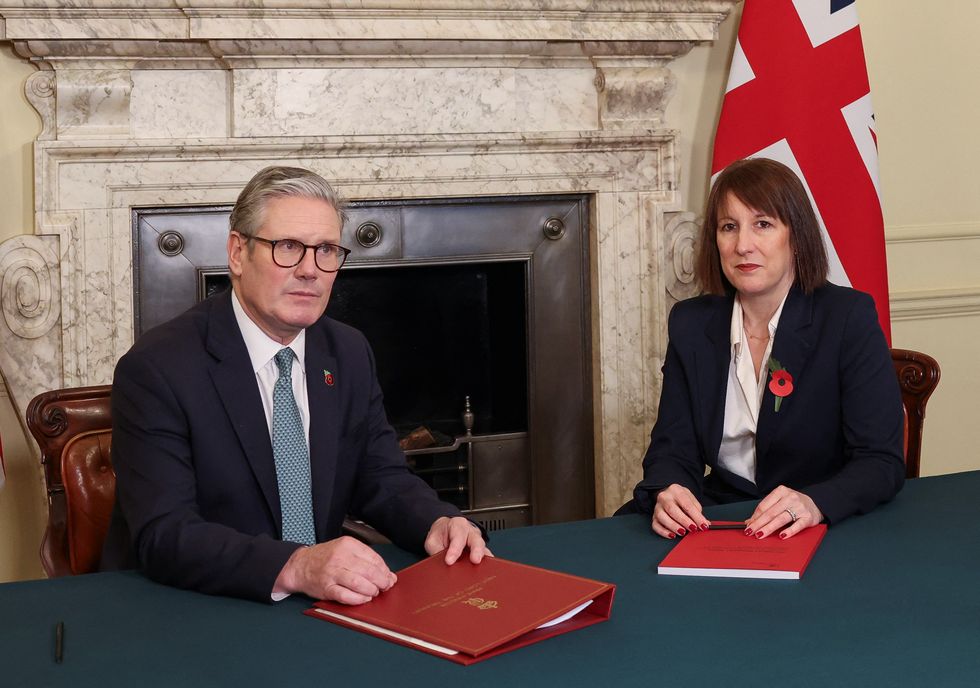Millions of UK households could see a loss of £356 per person next year as Rachel Reeves faces spending wrangles and a search for growth in 2025.
Despite potential improvements in public services that could offset some impacts, households could take a big hit according to a new analysis.
For the top half of earners, there will likely be a 0.4 per cent fall in living standards, equivalent to £140, even when accounting for public service benefits.
The economic picture remains challenging, with the Bank of England expecting zero GDP growth between October and December, as some economists raise concerns about a possible recession.
Sir Keir Starmer has stressed that he wants people to feel the benefits of economic growth, rather than simply being focused on a “line on a chart” showing GDP.
However, the Resolution Foundation think tank suggested a mixed picture in terms of the impact of the Government’s plans on living standards.
Mike Brewer, the think tank’s interim chief executive said the “budget tax-rise gamble from the Chancellor is that, while people may not be better off in purely financial terms, they will feel better off if we can have better, less dysfunctional public services”.

Reeves faces spending wrangles and a search for growth in 2025
PA
The Resolution Foundation analysis factored in both disposable income and “benefits-in-kind” from public services.
Low-to-middle income families are expected to fare slightly better, with those in the bottom half of the income distribution seeing a marginal 0.2 per cent rise in real living standards, worth about £28.
However, the poorest households face particular challenges from rising housing costs and council tax increases, alongside real-terms cuts to social security payments.
The wealthiest households will benefit less from the changes, as they typically rely less on public services and don’t gain as much from minimum wage increases, however, analysis suggests disposable income is likely to fall across most groups, with improvements in public services being crucial for any perceived benefits.
Brewer continued: “If we put a cash figure on the benefits-in-kinds from public services, then the 0.6 per cent real living standards fall for the richest tenth of households is equivalent to a cash hit of £356 per person next year.
“So, despite the Government’s new targets for rising disposable incomes in its plan for change, the living standards outlook for 2025 is hardly a cause for celebration: disposable income is likely to fall, and if households are to feel better off, then it will only be if they see the benefits from spending more on public services.”
Reeves faces significant challenges heading into 2025, with a looming Whitehall spending review that experts warn will be “difficult”.
The Chancellor has ordered departments to find “efficiency savings” of five per cent of their budgets, with a line-by-line review of spending expected to be published in June.
LATEST DEVELOPMENTS:
Carl Emmerson, deputy director of the Institute for Fiscal Studies, said her focus on investment was “commendable” but warned of limited options if growth fails to materialise.
The latest Office for National Statistics figures show the economy contracted by 0.1 per cent in October following a similar fall in September.
While the Office for Budget Responsibility forecasts two per cent GDP growth in 2025, independent forecasters suggest a more modest 1.3 per cent growth.
“She’s not given herself huge wiggle room against her fiscal targets and the spending plans,” Emmerson said, noting that spending plans look “pretty tight” from April 2026 onwards.

The Government has said the budget and plan for change would “deliver sustainable long-term growth, putting more money in people’s pockets through increased investment and relentless reform.”
PA
The OBR will produce updated economic forecasts on March 26, with Reeves set to respond in Parliament.
A Treasury spokesman addressed the economic outlook, stating: “The challenge we face to fix our economy and properly fund our public finances after 15 years of neglect is huge. But this is only fuelling our fire to deliver for working people.”
The spokesman emphasised that the budget and plan for change would “deliver sustainable long-term growth, putting more money in people’s pockets through increased investment and relentless reform.”
Rising costs continue to squeeze living standards, with official figures showing Consumer Prices Index inflation rose to 2.6 per cent last month, its highest since March.